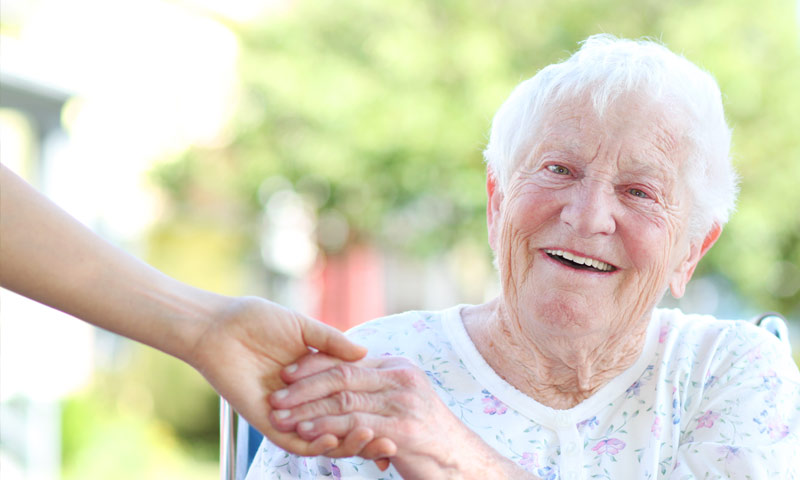Latest News from Everycare

A recent report has highlighted the fact that in large areas of the UK local authorities are failing to pay care providers enough to provide a service that can break even, putting huge pressure on their ability to recruit and retain staff.
It means, despite losing staff faster than they can be replaced, companies are unable to raise wages, says the Homecare Association.
Low wages and feeling undervalued are key factors leading care staff to quit, says the report.
Councils say they do not have enough money to pay companies more.
The Homecare Association, which represents some 2,340 care providers, calculates the true minimum cost of providing an hour of homecare in the UK is £21.43.
To read the full story visit the BBC website.
 Recent news headlines have reported dementia is the leading cause of death in the UK.
Recent news headlines have reported dementia is the leading cause of death in the UK.
Dr Clare Walton from the Alzheimer’s Society research team looked at the reasons why deaths from dementia are on the rise and how the numbers compare with deaths due to other major diseases.
The latest death statistics for England and Wales, released by The Office for National Statistics (ONS), showed the number of people dying of dementia is steadily increasing year on year.
In contrast, the number of people dying from heart disease and stroke has been declining. In 2015, dementia overtook heart disease and stroke as the UK’s biggest cause of death. The percentage of all UK deaths from the top four leading causes in 2017 were dementia, heart disease, stroke and lung cancer.

When it comes to deciding whether your parents, elderly friend or relative needs additional help to ensure they can live safely in their own home, it can be tricky to know where to start. The wheres, whens and hows of the situation are not simple. It can easily start to feel overwhelming as you try to get to grips with all the options available, the costs, and what is best for the elderly person themselves.
8 tips for deciding if an elderly person needs some extra support.
• Assess the person’s needs – This can feel quite difficult. Do you ask the person, observe them, ask other people who know them, or something else? You may not know what your parent, relative or friend requires, or what is available. We can help you organise your thoughts. You can fill in our and use your answers to establish what level and kind of support is needed. It’s a handy starting point for everyone involved.
Does your parent, relative or friend have:
• Family support – are there family or friends living locally and are they available to help?
• A safe home environment – is their home as safe as it can be? What barriers restrict their ability to stay in their own home? For example dangerous steps or staircases, a large garden, or badly maintained security?
• Medical needs – does your parent, relative or friend have increasing medical needs that they can’t manage on their own? Is the person taking their medication as per prescription? Do they need assistance?
• Good cognitive health – Can they clearly think, learn and remember, able to carry out everyday activities safely?
• Mobility – are they able to safely move around their home and ideally to local shops, GP surgeries and to see friends and relatives?
• Personal hygiene – Can they wash themselves and keep themselves clean? Do you think they are struggling with using the bath or shower on their own?
• How much support are they already getting around the above, and how much help do they realistically need to stay safe and healthy?
If your mum can’t see that well and lives in a rural area on her own, her needs will be very different from someone else’s healthy dad, who lives in a flat in the city surrounded by relatives but is starting to become frail and can’t get to the shops.
• Don’t forget – the person in need of care is still a person!
It’s vital that you involve the person themselves in the process from end to end, as a partner in it. Just because they’re getting on it doesn’t mean they’ve lost their pride, their love of independence, their unique personality. Nobody wants to lose control of their life, and that means sensitivity and positivity are both essential. Together you’ll find a clear way through any potential resistance faster and more easily.
 The government has announced that all unpaid carers in England who aren’t living with the people they care for can apply for free PPE. The news follows a successful pilot scheme designed to set up the right distribution systems and logistics. This means successful applicants will be able to keep themselves and the people they care for safe from the virus when they move from their home to the home of the person being cared for.
The government has announced that all unpaid carers in England who aren’t living with the people they care for can apply for free PPE. The news follows a successful pilot scheme designed to set up the right distribution systems and logistics. This means successful applicants will be able to keep themselves and the people they care for safe from the virus when they move from their home to the home of the person being cared for.
The free PPE offer lasts until the end of June but might be extended depending on how we fare coming out of lockdown. Almost two thirds of Local Authorities and local resilience forums have already signed up in support, and work is already starting on a workable nationwide PPE distribution system. To find out more about free PPE for unpaid carers in Kent visit https://www.kent.gov.uk/social-care-and-health/care-and-support/caring-for-other-people/ppe-for-unpaid-carers And to order free PPE for unpaid carers visit http://bit.ly/3reIXL3
It’s really good to get this news, since we know how important it is to do everything possible to protect the vulnerable and the people who care for them. Unpaid carers are the bedrock of the UK’s social care system, and they have laid their lives on the line during the pandemic. The scientific advice is to wear PPE while caring, and this scheme finally closes the gap we have all been so concerned about.
 The government’s Scientific Advisory Group for Emergencies social care working group recommends unpaid extra-resident carers should use PPE in the same way as their paid counterparts. It’s good to know that there is also financial support for local authorities and resilience forums who will support the rollout of free PPE, and to see so many of them signing up for the scheme so quickly.
The government’s Scientific Advisory Group for Emergencies social care working group recommends unpaid extra-resident carers should use PPE in the same way as their paid counterparts. It’s good to know that there is also financial support for local authorities and resilience forums who will support the rollout of free PPE, and to see so many of them signing up for the scheme so quickly.
As the Minister for Care, Helen Whately, said, “Unpaid carers are the unsung heroes of this pandemic. All too often their kindness and devotion go unseen and unacknowledged by society. I know the enormous strain this pandemic has placed on those caring for family and those they love. I’m determined to do everything possible to support them.”






